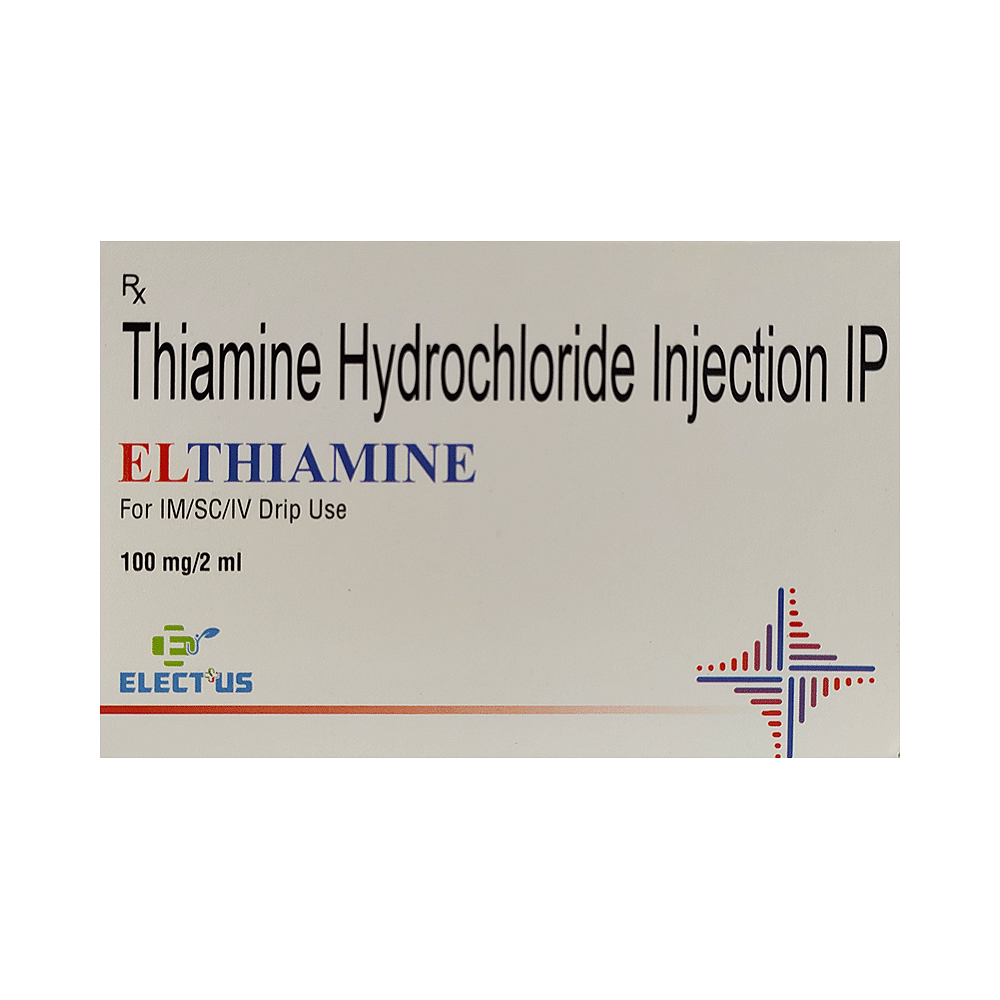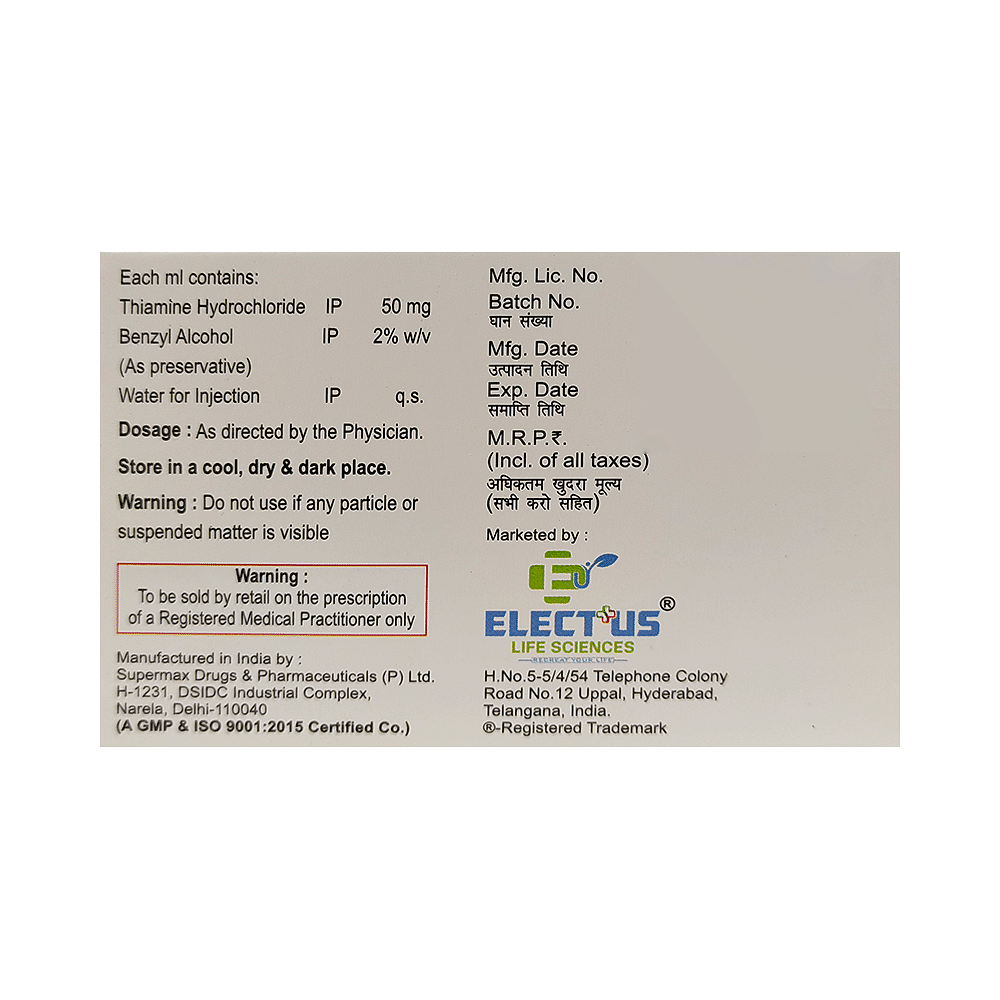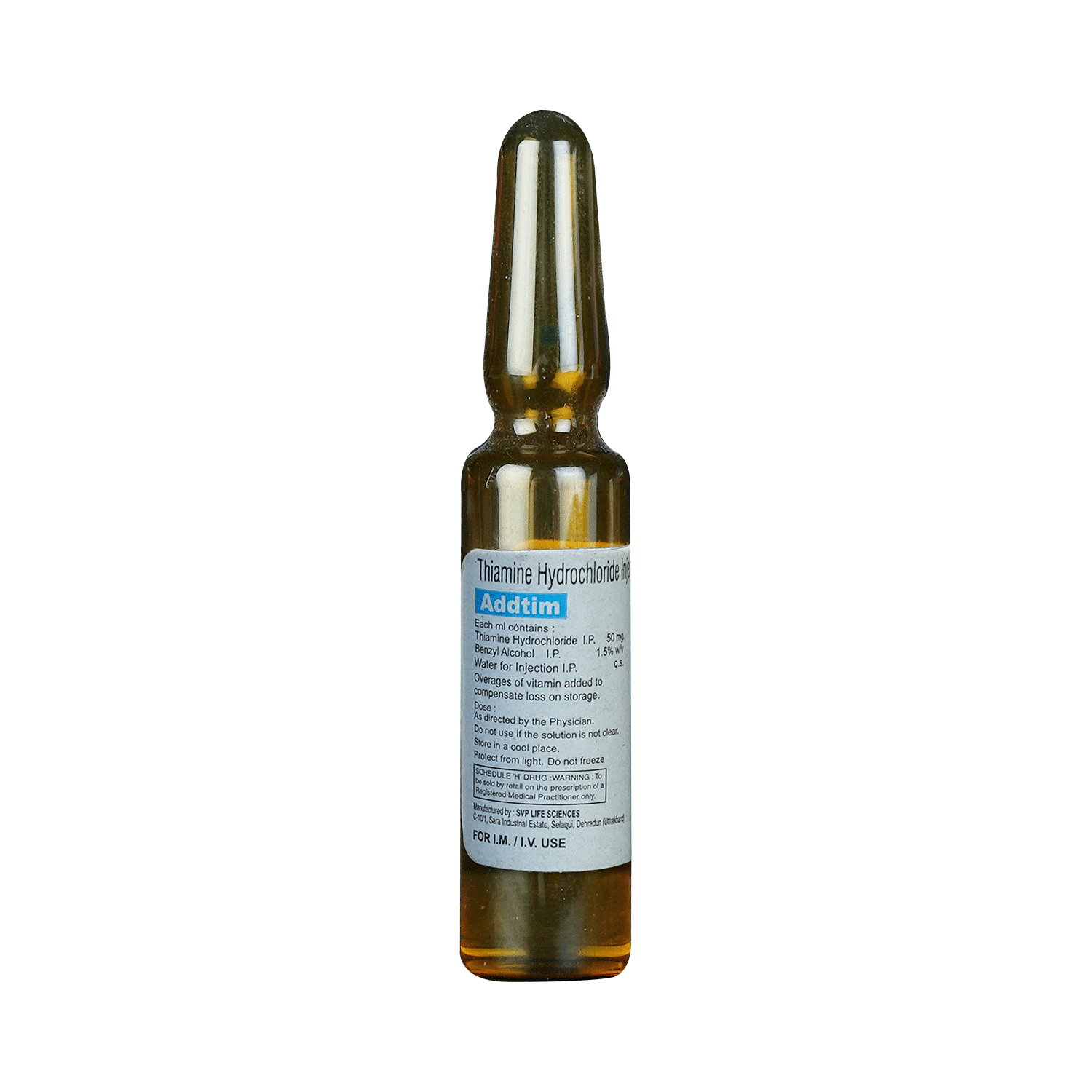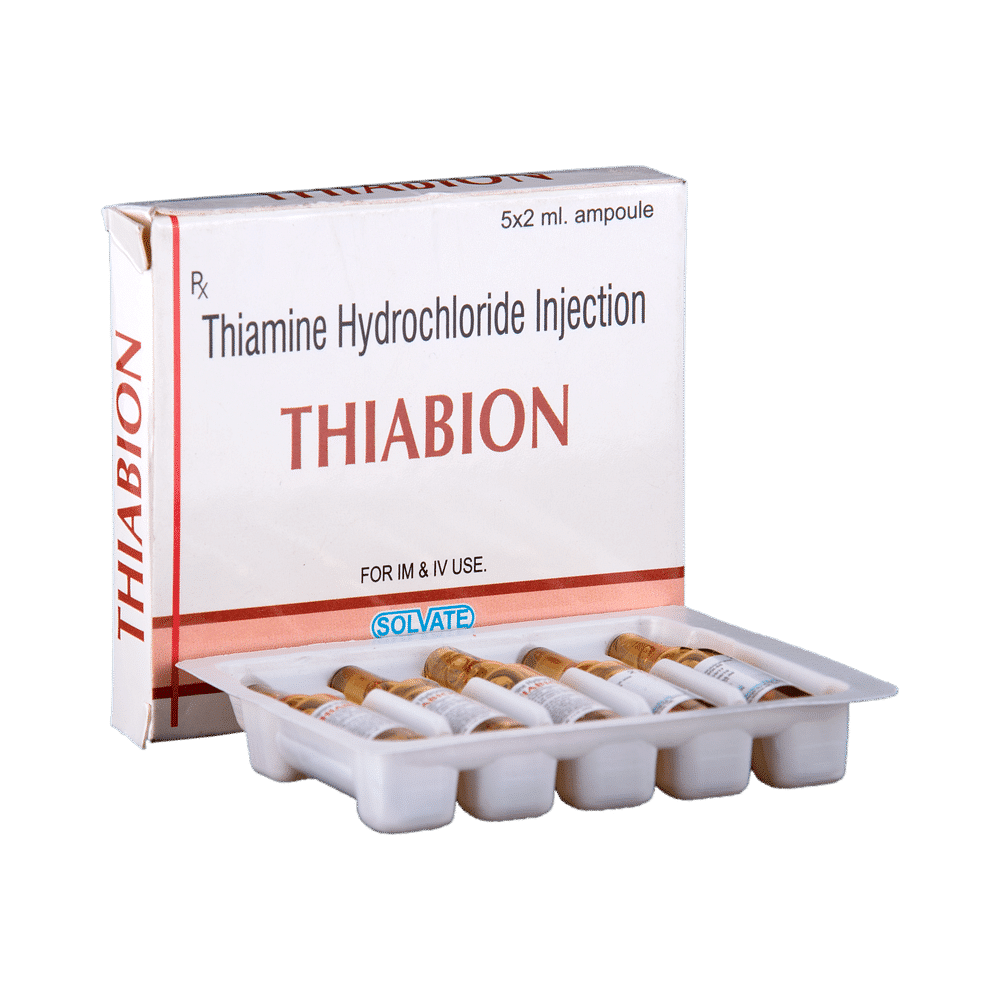

Elthiamine Injection
Manufacturer
Elect-Us Life Sciences
Salt Composition
Thiamine(Vitamin B1) (50mg/ml)
Key Information
Short Description
Elthiamine Injection is a supplement of vitamin B1 used to treat vitamin B1 deficiency, digestive problems, and other conditions.
Dosage Form
Injection
Introduction
Elthiamine Injection is given under the supervision of a healthcare professional and should not be self-administered. You should take it regularly to get the most benefit from it. This medicine may be only part of a complete program of treatment that also includes making changes to your diet and taking calcium and vitamin supplements. Elthiamine Injection may cause some common side effects such as injection site reactions, skin irritations, cough, and decreased blood pressure. Before taking this medicine, let your doctor know if you have any heart, kidney, or liver disease. Some other medicines can decrease the absorption of vitamins so let your doctor know all other medicines you are taking to make sure you are safe. It is important to ask your doctor's advice before taking any other vitamin supplements.
Directions for Use
Your doctor or nurse will give you this medicine. Kindly do not self administer.
How it works
Elthiamine Injection provides essential nutrients.
Quick Tips
Elthiamine Injection is prescribed to treat vitamin B1 deficiency Inform your doctor if you develop any allergic reactions or skin irritations Let your doctor know if you are pregnant or breastfeeding You should also include vitamin B1-rich food in your diet like whole grains, legumes, fish, poultry, and fortified breakfast cereal
Related Medicines
Frequently asked questions
What is Elthiamine Injection?
Elthiamine Injection is a pharmaceutical product that provides thiamine (vitamin B1). Thiamine helps the body process carbohydrates, fat, and protein to create energy in the form of adenosine triphosphate (ATP). It is used for treating deficiencies in thiamine.
What does Elthiamine Injection do?
Elthiamine Injection contains vitamin B1. This vitamin is essential for cellular function and energy production, enabling nerve cells to operate properly.
Who are more likely to have a deficiency of Elthiamine Injection?
Thiamine (vitamin B1) levels can decline with age and in individuals with certain medical conditions. Conditions such as alcoholism, malabsorption issues, and insufficient dietary intake may increase the risk of deficiency. It is also common in people with congenital heart disease. Individuals undergoing regular kidney dialysis may develop thiamine deficiency due to impaired renal function. Consult your healthcare provider for appropriate management.
How is Elthiamine Injection administered?
Elthiamine Injection should be administered only under the supervision of a healthcare professional or a doctor and never self-administered. The dosage will depend on individual needs and must be determined by your physician.
Does Elthiamine Injection cause weight gain?
Elthiamine Injection does not cause weight gain, although other deficiencies such as vitamin B12 may lead to some weight loss. It is crucial to consult your doctor if you have concerns about weight gain.
Is Elthiamine Injection good for diabetics?
Elthiamine Injection has shown potential benefits for managing diabetes by potentially improving blood sugar control. However, it is crucial to consult your doctor for personalized advice before use.





